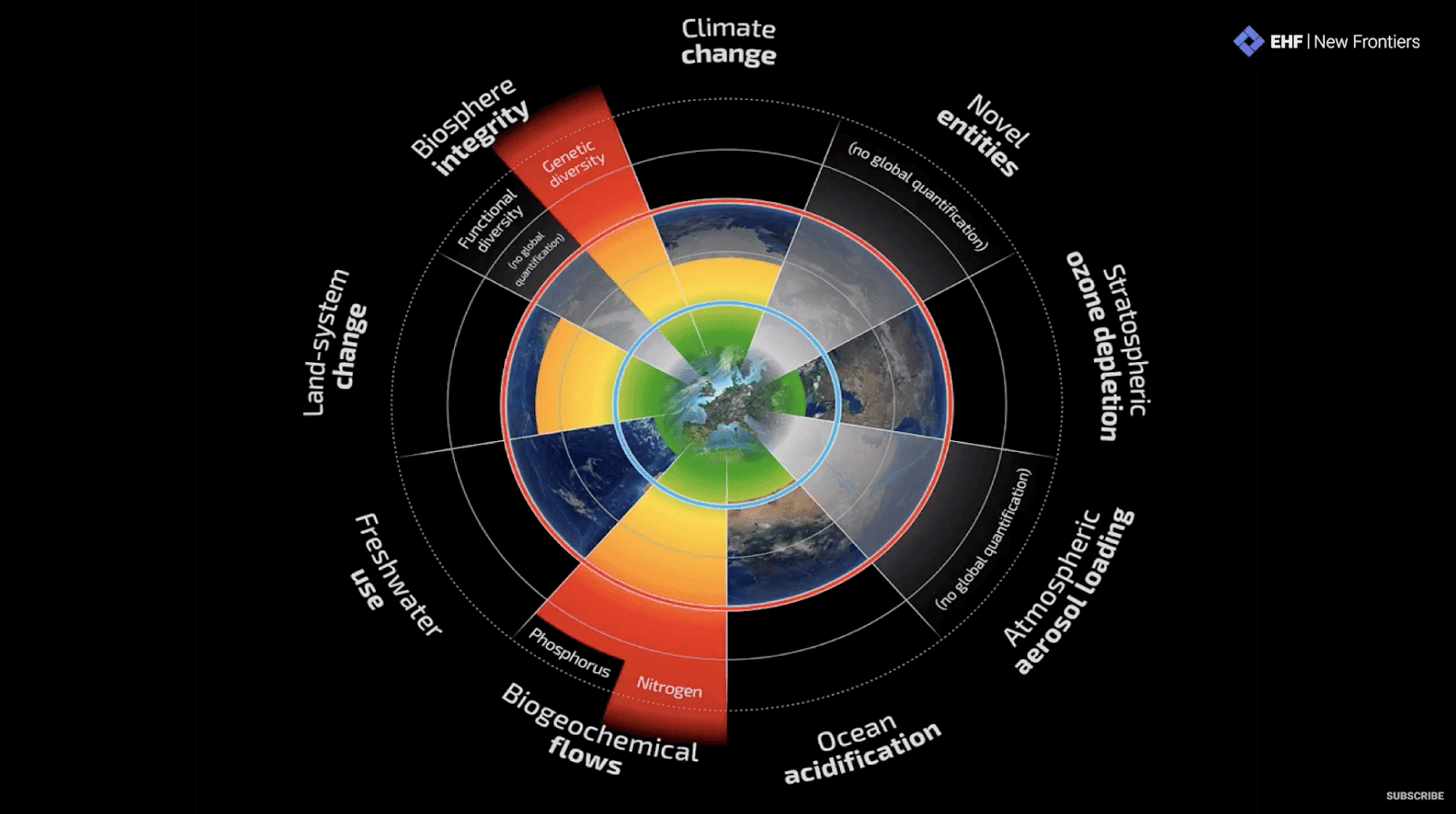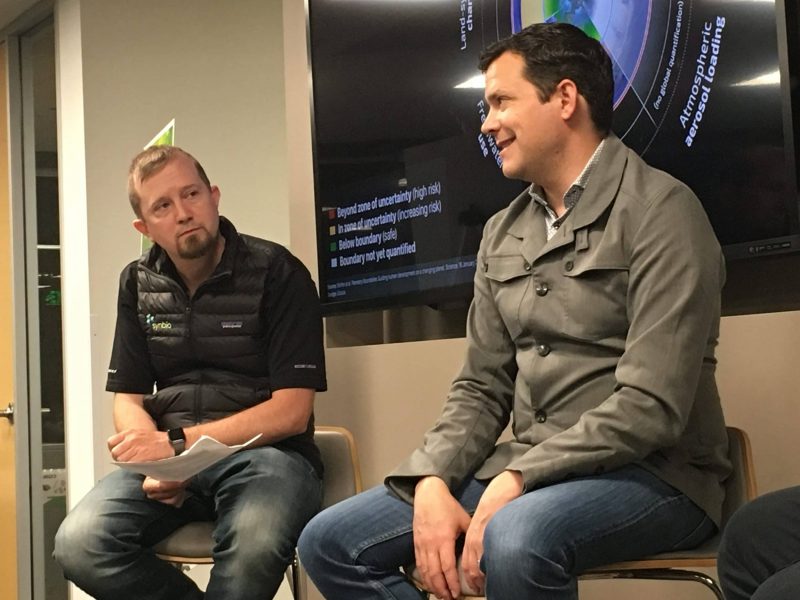“I should say that I'm probably the doom and gloom story,” said the World Economic Forum’s Nishan Degnarain to laughter, “but that Karsten should cheer you up and give hope that there is a solution, and we know the solution.”So began the conversation among Degnarain, Pivot Bio’s Karsten Temme, and SynBioBeta’s John Cumbers last week during the World Agritech Summit in San Francisco. The three gathered at WSGR with innovators, investors, and entrepreneurs to discuss the synthetic biology tools and technologies for tackling climate change. In particular, the question posed was: How can we use synthetic biology to reduce or even reverse the negative impacts of today’s agriculture on climate change?At the heart of the question is nitrogen, an essential nutrient for plants to grow. The air we breathe is 80% nitrogen, but it’s tightly bound in a gas form that plants cannot use. Soil nitrogen takes the form of nitrate, which is actually somewhat scarce. Modern farming -- and even your backyard garden -- requires adding nitrogen-based fertilizer, which is created using a high-energy chemical process that uses petroleum as the building block. About half of the nitrogen is lost during fertilization, washed away into the ocean or local waterways, where it feeds algae that in turn overpopulate and suffocate the natural environment. Perhaps worse is the invisible nitrous oxide gas that synthetic fertilizer releases, which is 300 times worse than carbon dioxide as a greenhouse gas.Enter Pivot Bio. Using a microbe already found in nature, they altered its existing genes to reactivate a dormant biological pathway. That pathway enables the microbe to pull nitrogen straight out of the air. The microbes naturally live on the plant roots and provide the nitrogen to the plant in exchange for other nutrients. The engineered microbe -- known by the brand name Proven -- just completed field trials and increased production by 7.7 bushels per acre compared to non-Proven corn. (U.S. average corn yield is about 170 bushels per acre.)

The planetary boundaries theory was the conceptual backdrop for a conversation among thought leaders last week in San Francisco about how agritech like Pivot Bio’s nitrogen-fixing microbes can slow or even reverse human-caused climate change, while also helping farmers be more productive.
“Biology can do things that chemistry can’t,” said Temme. “That’s what’s going to make biology replace chemistry and reverse course on all of this.”In speaking about the ability for synthetic biology to help change the world for the better, Temme struck an optimistic note.“The ability to compute what's going on in the world, make decisions, and be able to do something phenomenally sophisticated when it comes to biochemistry -- that's a process that we're really uncovering and learning a lot about in the academic sphere,” he said. “It's great to translate that into … the marketplace, and it’s a great time to be surrounded by the kind of technologies and expertise to really design and use those products.”Temme went on to say that Pivot Bio takes a no-nonsense business approach where climate change is concerned.“One thing we think about is how to design a product that is easy for a farmer to use,” he said. Not only does a product have to be easily implemented into farming practice, it must also provide real economic benefit to the farmer. It could be the best product in the world for the environment, but if both of those practical conditions can’t be met, then “it’s a non-starter for a young company.”

John Cumbers and Karsten Temme in conversation at WSGR in San Francisco about the impact synthetic biology can have on reversing climate change.
When asked whether corn and other plants grown with Proven would be considered transgenic, Temme pointed out that microbes are not contained in the food itself and wouldn’t have any impact in that regard. He suspected, though, that most of the plants that Proven would be used on would already by transgenic -- for example, 97% of corn is genetically modified. Proven would simply help to make them more environmentally friendly.The conversation turned to the potential downstream effects of an engineered microbe in the soil. Temme emphasized that Pivot designs its solutions to have the smallest, lightest impact possible, and hence the least chance of being able to have an unintended consequence.“And that means we start all of our potential products based on microbes that are already naturally part of our crops’ microbiome,” he said. By merely reawakening the nitrogen fixing ability of an existing organism, Temme said, all we're really doing is reverting to a system that already existed 150 years ago, long before we had synthetic nitrogen fertilizer.With one out of every two people on the planet fed by synthetic nitrogen fertilizer, and nitrogen fertilizer responsible for 77% of the potent nitrous oxide greenhouse gas emitted in the United States, agricultural innovation like this will be key to solving our increasingly dire climate predicament.Learn more about how we can use synthetic biology to slow or even reverse climate change at SynBioBeta 2019, October 1-3 in San Francisco.https://www.youtube.com/watch?v=PTQgyvqBCs8


















